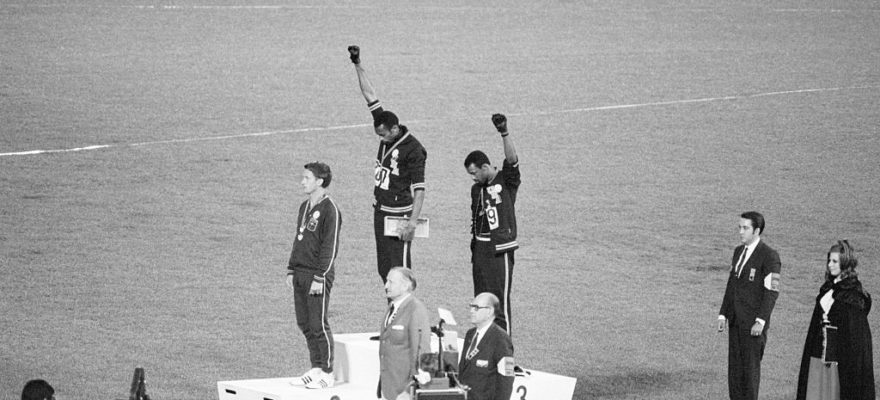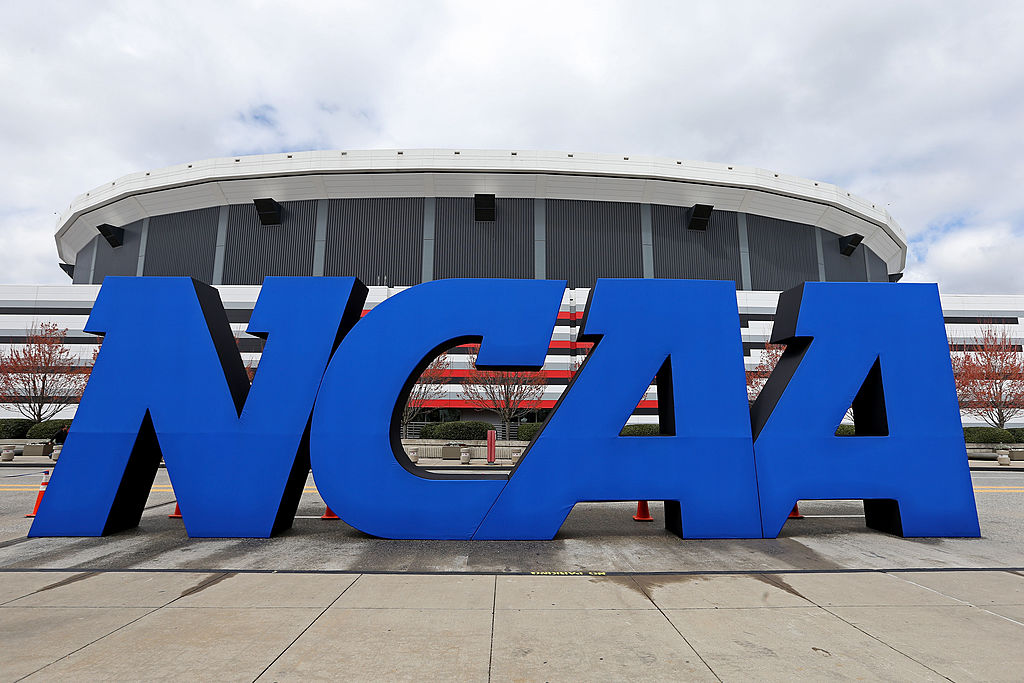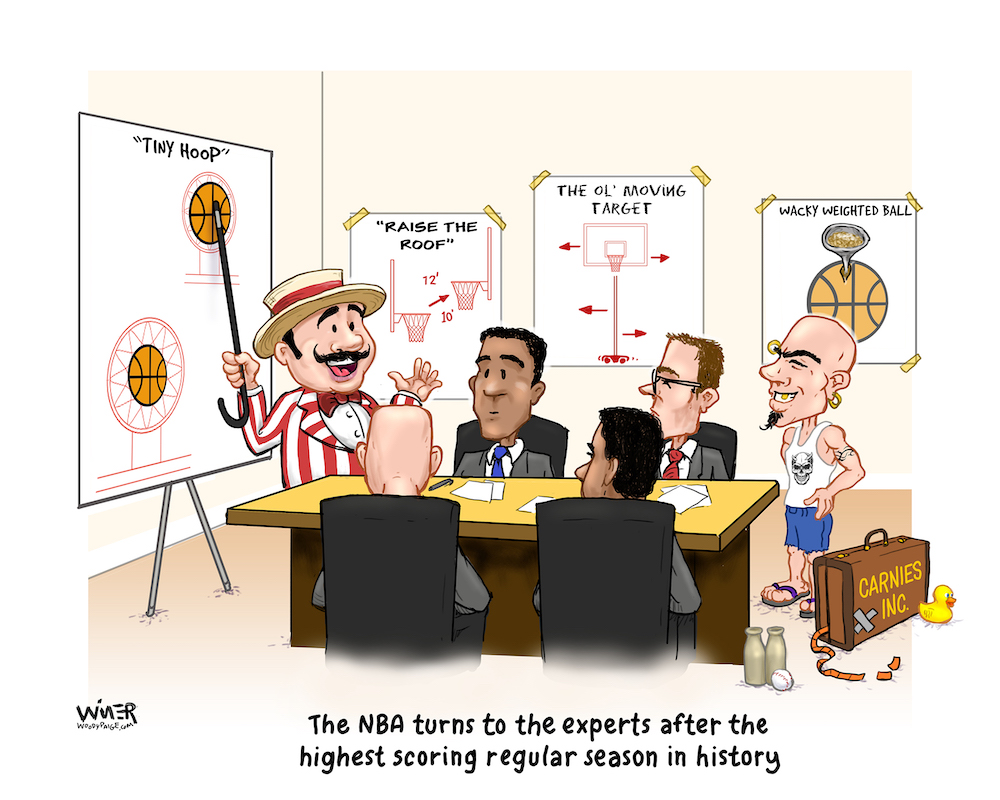More than a half century later, the United States Olympic & Paralympic Committee finally has made amends to Tommie Smith and John Carlos.
Sort of.
Decades before Colin Kaepernick took a knee before NFL games and Megan Rapinoe knelt before soccer matches, the duo of Carlos and Smith made their own declaration of remonstration.
Smith and Carlos, forever linked as the two most famous or infamous (depending on one’s viewpoint) protesters in the history of the modern Olympic Games, were among 12 individual men and women, and the 1998 U.S. women’s ice hockey team, who were announced Monday as the 2019 inductees into the Olympic & Paralympic Hall of Fame.
At the 1968 Olympics in Mexico City, Smith was the gold medalist, Carlos the bronze medalist in the 200-yard dash. But they arouse emotional memories as a result of standing on the victory podium with heads bowed and black-glove fists raised while the U.S. National Anthem was played before 72,000 spectators at Estadio Olimpico Universitario and a world-wide television audience.
Just six months after Dr. Martin Luther King. Jr. was assassinated and as civil rights marches divided America, the pair were on stage protesting racial discrimination in America.
It is somewhat curious that just a month before Smith and Carlos were voted into the Hall of Fame as Olympic “legends,” two other U.S. medalists were placed on probation for a year by the USOPC for their protests at the Pan-Am Games.
The more things change in society and sports, the more they stay the same.
During separate awards ceremonies in Peru, hammer thrower Gwen Berry raised a fist during the National Anthem, and fencer Race Emboden kneeled on the medal stand.
They, too, used the podium for their platforms.
Sarah Hirshland — named the new USOPC CEO in July of 2018 to clean up after years-long scandals involving the organization, its head, and the board of directors — obviously has been drawn into both the Emboden-Berry and Carlos-Smith matters.
She sent letters, obtained by the media, to Emboden and Berry, explaining the probations (which will allow them to practice, prepare and compete to be in the Olympics next year in Tokyo).
She could have applied a stronger punishment – suspension from the Summer Games – but cautioned them and all athletes that future, similar actions could call for more stringent penalties. Hirshland was tolerant and understanding of the athletes’ freedom of expression over social issues.
However, the USOPC compels American athletes to agree to certain “non-political’’ standards in events nationally and internationally, based on the 2017 (regularly-revised) Olympic Charter, which states: “No kind of demonstration or political, religious or racial propaganda is permitted in any Olympic sites, venues or other areas.’’
Rule 50, is rather haphazard, slapdash and antiquated, especially when section 2 is followed by a regulation that athletes can’t wear clothing or equipment promoting “commercial’’ enterprise – which most do.
Why discipline athletes who protest because of social injustices, but not those who use skis and googles featuring sponsor names?
Olympic officials are hypocrites, as they’ve always been since 1896 when the modern Games were originated.
The 1936 Summer Olympics in Berlin was a complete propaganda-laden, political, discriminatory, evil episode in world history.
In 2019, Hirshland is emphasizing the ‘’athletes first’’ philosophy of the USOPC after years of the Colorado Springs-based institute primarily protecting its grossly overpaid execs and sports associations.
But, as usual, the CEO of the USOPC continues to lead the country in issuing statements rather than speaking directly to and with the public or the press.
Hirshland indeed was responsible for the return of inductions into the newly-named USOPC’s Hall of Fame. The honoring of former athletes, coaches, teams, and contributors had been idiotically dormant since 2012.
This group of inductees – with legends as an innovative category – is ideal considering that the Olympic Hall of Fame Museum is scheduled for an early 2020 opening, after the Class of ’19 introduction in November. The others enshrinees certainly deserved inclusion.
The impressive list includes the gold medal-winning hockey team, Paralympians Chris Waddell (skiing, track and field), Candance Cable (skiing) and Erin Popovich (swimming) and Olympic greats Dara Torres (swimming), Lisa Leslie (basketball), Apolo Anton Ohno (short track speedskating), Misty May-Treanor (beach volleyball) and Nastia Liukin (gymnastics); diving coach Ron O’Brien and special contributor Tim Nugent.
I was fortunate to cover several of the athletes at 10 Olympics.
Hirshland issued a statement that included: “It’s an honor to welcome the class of 2019 into this prestigious and celebrated honor roll. We thank them for their impact on sports and society, and for continuing to inspire the next generation of athletes and fans.’’
She didn’t highlight Carlos or Smith, and the CEO didn’t offer an official apology on behalf of the USOPC or the Olympic movement. But the “impact on sports and society’’ phrase was appropriate.
My research of the Olympic Charter revealed that the “anti-demonstration’’ order didn’t exist in 1968. The USOC assertedly addressed the protest with Carlos and May, but only sent them home after International Olympic Committee executives threatened to disqualify the entire U.S. team. The USOC weakly gave in to the pressure, and even kicked the medalists off the team permanently.
Back in the U.S., the two were ostracized and condemned by a sizable segment of the population, and the USOC basically erased their achievements from the records. But, for the past 50 years Carlos and Smith have carried on their lives and civil rights activism. Eventually, though, their decision at the Olympics was seen by many through a different prism. Their university, San Jose State, erected a statue of Smith and Carlos. They have received acclaim and awards, and were invited with 1968 teammates to the White House in 2016.
At long last, the USOPC stops running away and recognizes, and must express regret to, Tommie Smith and John Carlos – who belong in the Olympic Hall of Fame.
This column originated in the Colorado Springs Gazette.

















